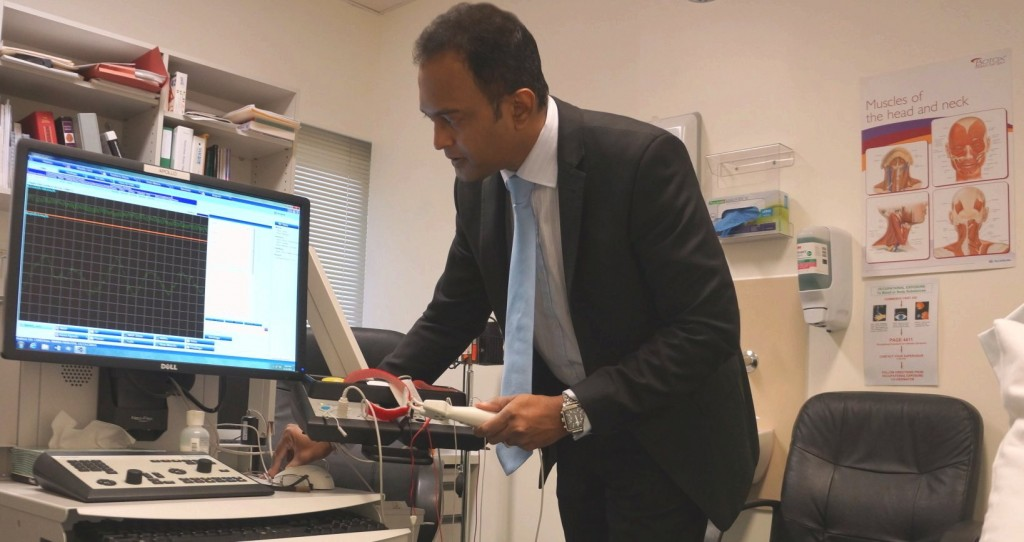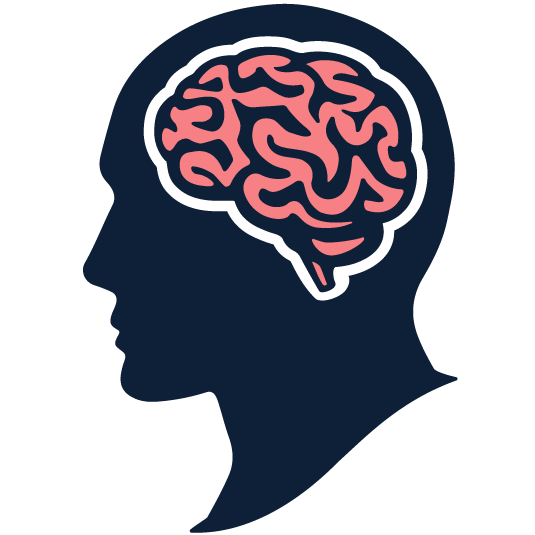- Nerve conduction studies measure how well and how fast the nerves can send electrical signals. Nerves control the muscles in the body with electrical signals called impulses. These impulses make the muscles react in specific ways. Nerve and muscle problems cause the muscles to react in abnormal ways. During the test the patient will be connected to a few electrodes (stick on patches on the skin) and a small electric impulse is delivered through a handheld stimulator. This is usually not painful, but can be discomforting sometimes. Since the electrodes are attached to your skin, make sure it is clean and free of sprays, oils, creams, and lotions. Please make sure your hands and feet are warm prior to the test(specially during the colder months of the year) which would enable more accurate results.
- If you have arm/leg pain or numbness, you may have these tests to find out how much your nerves are being affected. These tests check how well your spinal nerves and the nerves in your arms and legs are working. These tests are useful to diagnose damage to the peripheral nervous system, which includes all the nerves that lead away from the brain and spinal cord and the smaller nerves that branch out from those nerves. This test is often used to help find nerve problems including carpal tunnel syndrome, ulnar neuropathy or peripheral neuropathy.

- An Electromyogram (EMG) measures the electrical activity of muscles at rest and during contraction. This test is used in diagnosing diseases that damage muscle tissue, nerves, or the junctions between nerve and muscle, and can be helpful in identifying the cause of weakness, paralysis, pain or muscle twitching. These problems may include a nerve root damage/irritation from a prolapsed disc, amyotrophic lateral sclerosis (ALS), Myopathy, plexopathy or Myasthenia. The EMG does not show brain or spinal cord diseases.
- If you take blood thinners, such as Warfarin (Coumadin), your doctor may ask you to stop taking this medication before your procedure. If you take Aspirin or Clopidogrel(Plavix), usually you are not required to stop these, but you may notice some extra bruising where the needle sampling was performed which may last for a few days.
- This test is performed with a small needle that is inserted to different muscles of the body, that will record the electrical activity of the muscles. The insertion and recording through the needle can cause pain and discomfort, but is usually well tolerated. If you have a tendency to faint, feel light headed during the test, feel significant discomfort or pain during the test or have a needle phobia, please inform the doctor performing the test, to take some precautionary steps during the procedure.
This is a specialised EMG study performed by Dr. Seneviratne who has undergone special training in this technique. This study is performed with a similar needle to the EMG study, but involves longer muscle sampling and more detailed examinations of the muscle. This test is usually performed to diagnose neuromuscular junction deficit disorders such a Myasthenia Gravis.
This is a specialised selective EMG study performed by Dr. Seneviratne with an EMG needle with sampling of Laryngeal (vocal cord) muscles. This study is helpful in identifying neurological causes of voice disorders, and assessing the prognosis of such problems. This study is usually performed by Dr. Seneviratne at the Voice EMG clinic at Monash Neurology, Monash Medical centre, which is conducted with the collaboration of Mr. Malcolm Baxter, ENT specialist.
Please note that these studies are NOT performed at Melbourne Neurology. Dr. Seneviratne will refer the patients to an appropriate test centre for these tests if the clinical condition and examination warrants the above tests. The Autonomic tests and small fibre tests are valuable in further evaluation of selected small fibre neuropathies, certain episodes of collapses and certain neurodegenerative problems, and are usually conducted at Monash Neurology, Monash Medical Centre, Clayton.
Please note that these tests are NOT performed at Melbourne Neurology. Dr. Seneviratne will refer the patients for these tests if required. The biopsies are usually performed by Neurosurgeons as a day procedure.
 1. Nerve Conduction Studies
1. Nerve Conduction Studies